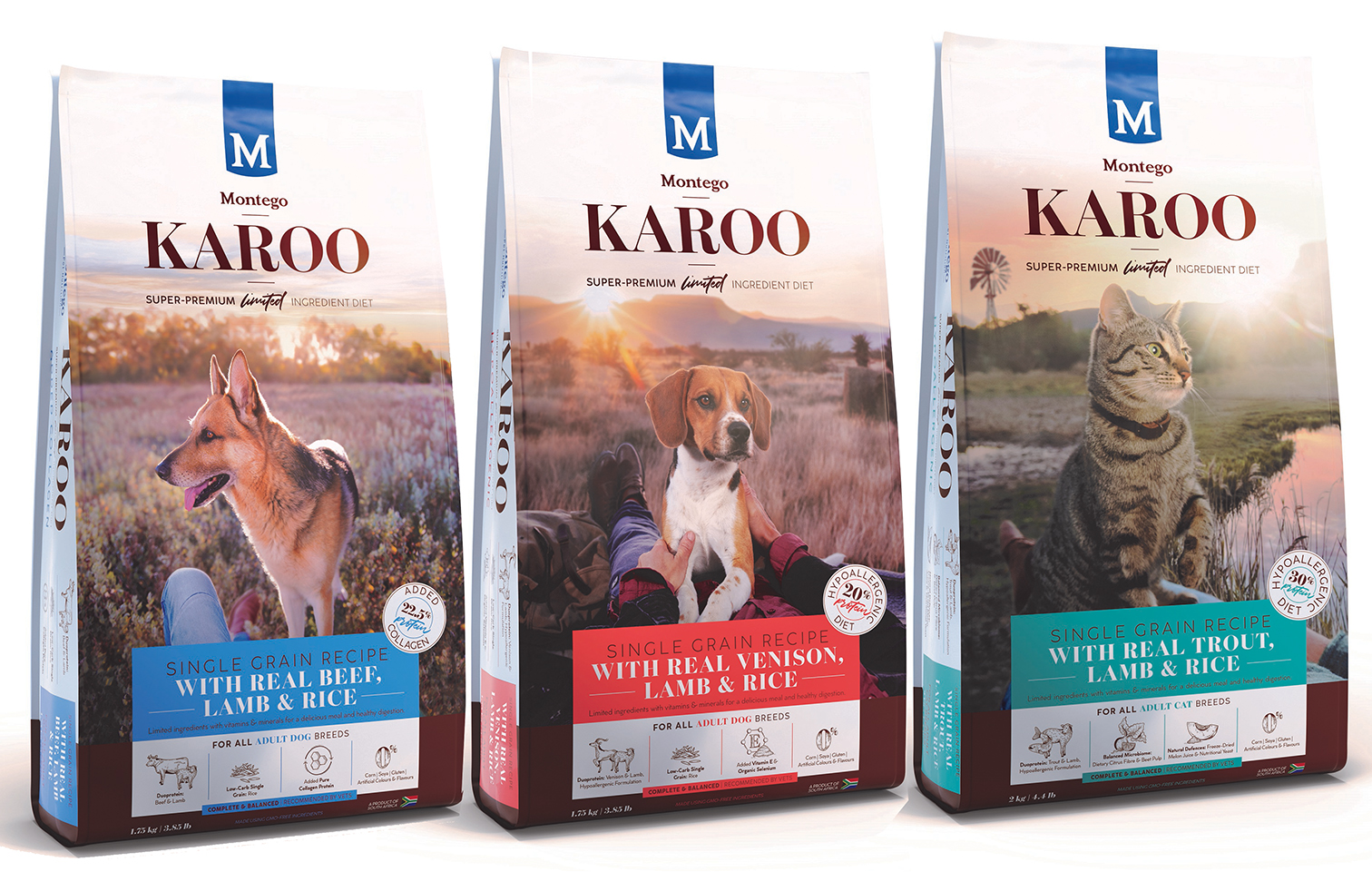Mealtimes should be happy times for your pets, but did you know that they may have food allergies just as people do?
Pets are like people in more ways than we realise. They love a meal that’s full of flavour and benefit greatly from food made with quality ingredients, and they, too, can be allergic or intolerant to certain ingredients in their food, which is where protein alternatives in their food become essential.
Tilana Mare, Nutritional Development Manager at Montego Pet Nutrition talks about allergies in pets and what to look out for if you suspect your fur-baby may have allergies.
She also provides a few nutrient-rich protein alternatives for your pet to try if they may be allergic to chicken.
HOW DO I KNOW MY PET IS ALLERGIC TO CERTAIN FOODS?
Vomiting, diarrhoea and itchy skin are just some of the concerning symptoms to look out for in both cats and dogs. More specifically, dogs may land up with chronic ear infections, while cats may experience wheezing, gas and bloating as a result of eating certain foods that don’t agree with them.
It’s often large, giant or specific dog breeds like Great Danes and Boerboels that experience food allergies. In cats, Siamese and Siamese cross-breed have shown more prevalence of food allergies than other breeds. But, just like us, each dog and cat are different and unique, making it all the more important to see what works best for them.
THE POWER OF PROTEIN ALTERNATIVES – ESPECIALLY FOR CHICKEN ADVERSITY
While chicken is a great protein source that provides essential amino acids to support strong muscles and provide energy, up to 25 per cent of dogs can have an adverse reaction to it, so a protein alternative is a must.
In this case, lamb, venison, and beef are the go-to protein alternatives for dogs with chicken sensitivities. It’s iron-rich and a great source of B vitamins and Zinc. Venison is seen as a novel protein source making it a perfect choice for a hypoallergenic diet.
Chicken is also a common ingredient in cat food and one that tends to cause more allergic reactions in cats. In this case, trout, for example, is a tasty, high-protein alternative that is a rich source of omega 3 fatty acids, providing vitamins and minerals essential for your cat. Trout also nourishes your cat’s skin, improves hydration, and safeguards a healthy, shiny and soft coat.
OTHER PET FOOD PROS AND NO-NO’S
For dogs with joint health problems or sensitive skin, consider adding collagen to their diet. Better yet, opt for a dog food that already contains collagen. This will support active and growing joints while soothing and repairing the skin.
With a little trial and error, you can find a protein alternative for your pet to help alleviate any pain or discomfort, allowing your fur baby to tuck in at mealtimes without feeling sick later on. Remember to give it around six to eight weeks before you judge whether the new food has made a difference or not.
A limited-ingredient diet for adult dogs and cats experiencing digestive disorders and intolerances, delicate stomachs, or skin sensitivities can make the world of a difference.
TRY THIS:

Montego Karoo Venison & Lamb for adult dogs and Montego Karoo Trout & Lamb for adult cats offer hypoallergenic solutions to these challenges, and Montego Karoo Beef & Lamb with added collagen for adult dogs supports muscle development, tendons and bone strength while keeping skin moisturised.
Details: Montego Pet Nutrition






